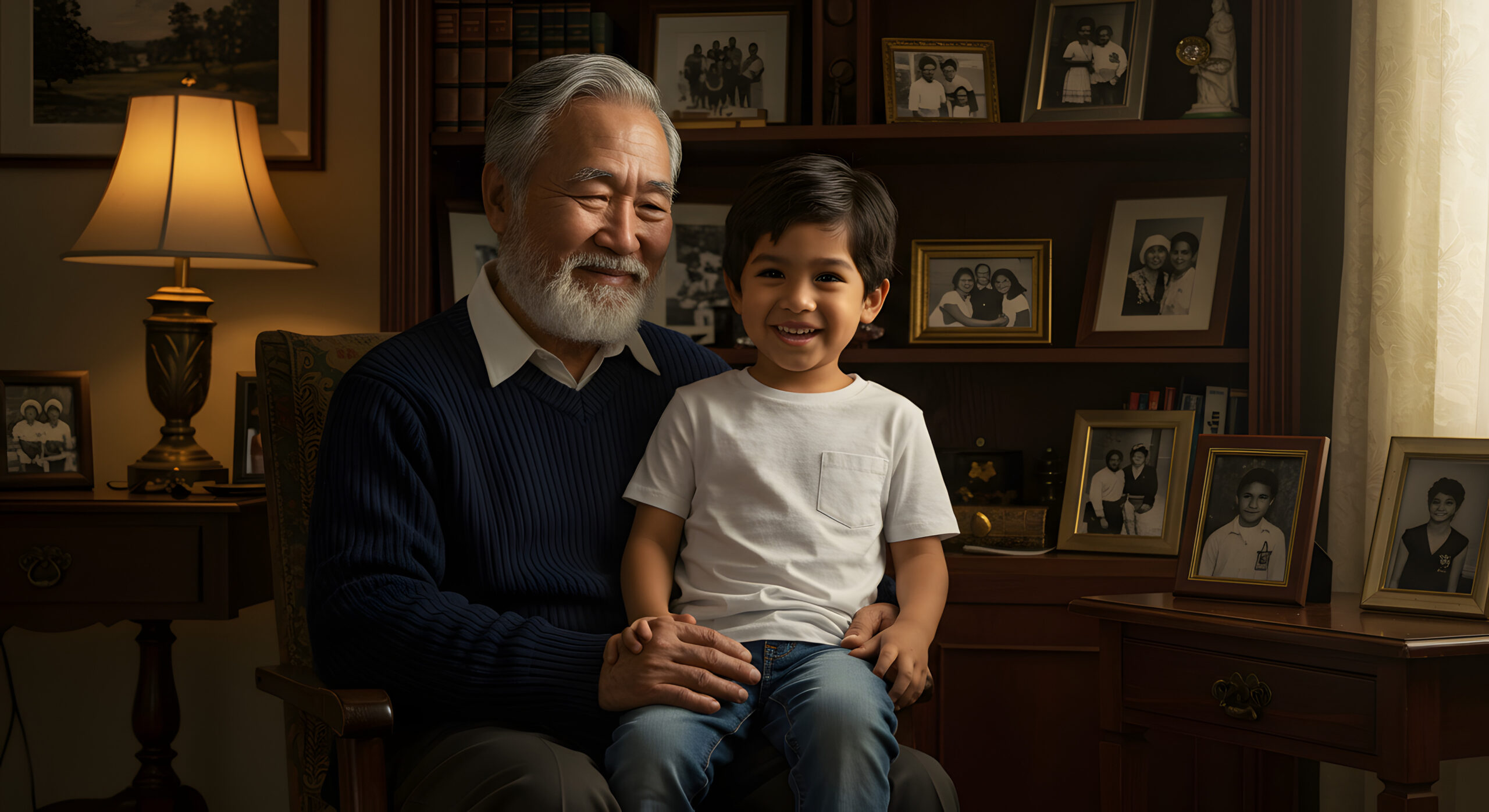By Stefano Maroni, of New York
When we think of inheritance, we often picture money, property, or heirlooms passed down through generations. Yet the most enduring legacies are rarely tangible. They live in stories—small, quiet, often overlooked narratives that shape who we are long before we even realize it. These stories are the hidden inheritance of a family, carried in memory, in habit, in the way we understand the world.
Growing up, I was surrounded by these subtle legacies. My parents, immigrants who had built their lives from scratch, rarely spoke of wealth or possessions. What they passed down were stories: about their childhoods, the sacrifices they made, the relatives they lost, the small victories no one ever celebrated publicly. These stories shaped me, influenced my values, and silently guided the person I would become.
The Power of Stories
Stories are how families remember themselves. They teach us resilience, morality, and identity. They are often imperfect, filled with exaggerations, omissions, and personal bias, but that is what gives them life—they are human.
I remember my grandfather telling me about walking miles to school in the snow, about the kindness of a neighbor who once shared bread when the cupboards were empty. I remember my mother recalling the difficulties of raising children in a new country, the small victories that made her heart swell with pride. These narratives were not heroic in a cinematic sense; they were humble, intimate, and deeply instructive.
Unlike money or property, stories cannot be spent. They cannot be lost in a stock market crash or sold at an auction. They live in the imagination, in the way we make choices, in the way we connect with others.
Lessons Hidden in Everyday Life
The inheritance of stories is rarely explicit. It shows up in subtle ways: in how we approach work, in how we treat others, in what we value.
For me, the lesson was about perseverance and quiet dignity. Watching my father repair cars long before I could understand mechanics, seeing the pride in his eyes as he returned a customer’s vehicle, taught me that honor comes from showing up and doing the work, not from accolades or recognition. My parents’ stories, both spoken and unspoken, instilled values that no formal education could teach.
Every family has its own hidden curriculum. Some teach humility. Some teach caution. Some teach ambition or empathy. The wealth of a family is not in the assets it leaves behind, but in the stories that guide the next generation toward wisdom and awareness.
Carrying the Legacy Forward
Understanding the power of family stories is not enough—we must also choose to carry them forward. That doesn’t mean retelling the same tales verbatim or idealizing the past. It means absorbing the essence of what they convey and allowing it to shape how we live.
I try to do this by listening first. By asking questions, by paying attention to the quiet reflections of my parents and relatives, by writing down what I remember so it doesn’t slip away. The act of remembering is itself a form of inheritance—it transforms passive memory into active legacy.
It also requires reflection. Not all stories are comfortable. Some are filled with hardship, injustice, or mistakes. Yet even these narratives have value. They teach us what to avoid, how to navigate challenges, and how to empathize with others who have faced similar trials. In this way, stories become moral compasses as much as family histories.
Beyond the Individual
Family stories also connect us to broader history. Through them, we understand immigration, labor, love, and loss in ways no textbook ever could. They remind us that our lives are intertwined with those who came before us and that our decisions ripple forward, shaping the stories future generations will inherit.
When I write, I often think about these stories. They are a well I draw from, a reminder that my work is not just for myself but part of a larger continuum. Every anecdote, every lesson, every memory becomes part of the landscape that informs my writing, my relationships, and my understanding of the world.
Why These Stories Matter More Than Ever
In an age where material wealth often dominates conversations about success, the hidden inheritance of family stories offers a counterpoint. Stories give context, meaning, and depth to our lives. They remind us that who we are is never just a product of our personal choices—it is also a product of the lives, struggles, and triumphs of those who came before us.
They also provide grounding in times of uncertainty. When life feels disjointed or overwhelming, revisiting the stories of our family reminds us that we are part of a larger narrative, one that stretches beyond our immediate concerns and situates us in a lineage of perseverance, love, and memory.
Carrying Stories Into the Future
The final measure of inheritance is not what we receive but what we pass on. Family stories, more than any bank account or house, hold the power to shape generations. By listening, reflecting, and retelling, we honor our ancestors and create a foundation for those who will follow.
I’ve come to understand that these stories are not just memories—they are a form of currency, richer than gold, because they teach us how to live. And in a world obsessed with measuring value in dollars and possessions, perhaps the most important inheritance we can receive—and give—is the one that cannot be bought.
